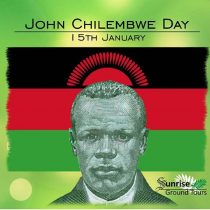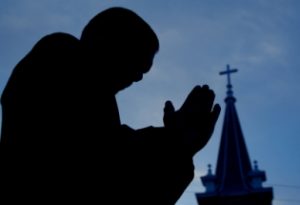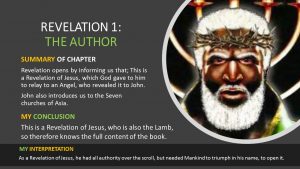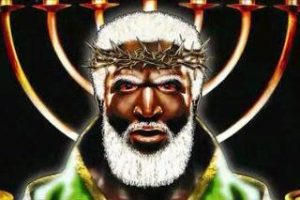
Guardian of A Temple Gate:
 The Right Honourable Reverend, John Chilembwe.
The Right Honourable Reverend, John Chilembwe.
Reverend John Chilembwe was born in the year 1871 and ascended on February 3, 1915 after being executed and martyred by the Colonial British government.
Nothing is really known about his life until in 1892 when he became a house servant of Joseph Booth, a white, radical and independent-minded missionary from Derby, England. In Booth's household and mission Chilembwe became acquainted with Booth's radical religious ideas. Booth is often created with using and possibly coining the phrase ‘Africa for the African’s, latter popularised by the Garvey, through his UNIA.
Booth left Nyasaland with Chilembwe in 1897, to visit the United States. Booth however returned to Nyasaland alone in 1899, but Chiembwe remained in the U.S, where he was ordained as a Baptist minister at Lynchburg in 1899 and then he returned to Nyasaland 1900, in his own words, "to labour amongst his benighted race".
 He preached the values of hard-work, self-respect and self-help to his congregation. By 1912, Chilembwe had founded several schools, which had 1,000 pupils and 800 adult students. However, by 1912 or 1913, Chilembwe had also become more politically militant and openly voiced criticism over the state of African land rights and of the conditions of labour tenants that moved him towards thoughts of revolt.
He preached the values of hard-work, self-respect and self-help to his congregation. By 1912, Chilembwe had founded several schools, which had 1,000 pupils and 800 adult students. However, by 1912 or 1913, Chilembwe had also become more politically militant and openly voiced criticism over the state of African land rights and of the conditions of labour tenants that moved him towards thoughts of revolt.
In December 1914 and early January 1915, Chilembwe and his leading followers aimed at attacking British rule and supplanting it, if possible. He began his uprising in late January and it lasted only a few days and was hugely unsuccessful, due to lack of local support. After avoiding attempts to capture him and apparently trying to escape into Mozambique, he was tracked down and killed on February 3.
The aims of the rising remain unclear, partly because Chilembwe and many of his leading supporters were killed, and also because many documents were destroyed in a fire in 1919. However, use of the theme of "Africa for the Africans" suggests a political motive rather than a purely millennial religious one.
The Credentials and Significance:
John Chilembwe’s story is again very important for us, as it gives us another insight, into not only how the Bible, Christianity and Christ, has been interpreted to mean something other than submission to your master, has it is commonly perceived when, taught by the master. But it also allows us to look and analyse a very significant era of Black history and a theology seldom highlighted, namely Ethiopianism and its influence upon the Mind-Set of African people, Christians in particular, both in the 18th & 19th century that culminated in its reaching its heights, in the early 20th century through direct works and accomplishment of Marcus Garvey.







